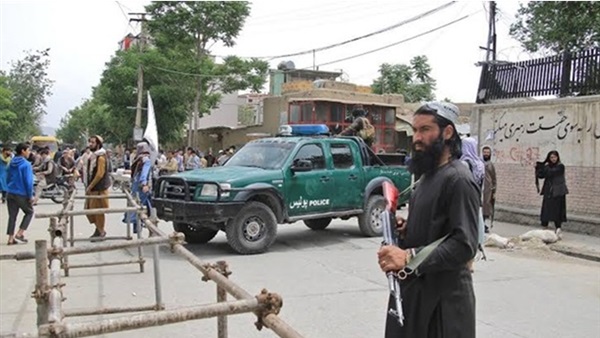Dissatisfaction with application of Islamic punishments in Afghanistan in light of deterioration of life

Since the Taliban took over the reins of government in Afghanistan in mid-August 2021, it began implementing its ideas gradually until it ended with forcibly applying Islamic hudud punishments on citizens, which has left a great division internally and condemnation of the matter from abroad after the movement applied the first death sentence, with the movement claiming that the mechanism adopted for the application of Sharia rulings is accurate and that there is no loophole in it.
Division at home
The Afghan street is divided about the Taliban returning to the official application of legal hudud punishments in the country about 16 months after it seized power following the American withdrawal in August 2021. Afghan human rights defender Aliha Mohammad Naseer said, “What the Taliban is doing in implementing strict death sentences and others is a violation of human rights and a clear indication that the movement does not want to conform with the world, and that it will push the country to the situation that existed in the 1990s,” noting that the movement “talks about Sharia, but it intends a special understanding of Sharia that neither the Afghans nor the world are satisfied with.”
Naseer considered that “the litigation system is incomplete, as there is no written law or mechanism for appointing judges, while the movement abolished the country’s constitution,” adding that “the Afghan people, if they cannot change the Taliban, should not support its unwanted steps.”
Meanwhile, Afghan activists affirmed that the people at home have sacrificed everything precious during the past four decades for the sake of religion and for the sake of Islam, but there are priorities that must be realized, calling for the necessity of the need for continuous support from the international community, and that the application of hudud is from Islam and an essential part, but the Taliban has to take care of other things as well, but it sees Islamic law in its own way.
Fears of incompetence of judges
The Afghan writer Shafiq Afghan confirmed in a series of tweets that Islamic law commands the application of hudud, but before that a clear mechanism is needed for appointing competent judges who have high efficiency in order to be able to implement the hudud punishments, expressing his fear that the Taliban judges may not have much competence in order to be able to apply hudud to the people at the present time.
In mid-November, Taliban leader Mullah Haibatullah Akhundzada ordered the judges to apply qisas (retaliation) and other legal punishments for those whose cases have been completed and passed through sufficient legal stages, while no local or international reactions have been issued so far.
Taliban spokesman Zabihullah Mujahid said on Twitter, “The leader of the Taliban ordered, in a speech to the judges, the application of the hudud on thieves, those involved in kidnappings, and those who stir up sedition.”
Mujahid did not discuss other details or say when this meeting took place in which the Taliban leader ordered the judges to apply the hudud.
The deputy spokesman for the movement, Bilal Karimi, said that the Taliban government is well aware of its obligations towards the people in all aspects and has not neglected any side, adding that it is aware of its priorities and understands its duties.
During the group’s first rule in the 1990s, the Taliban were intensively implementing sentencings and hudud, but they seemed to be slower since returning to power last year, which some attributed to their attempt to obtain international recognition, but Bilal Karimi said that the delay occurred due to the completion of the mechanism and the procedural process.
Media reports revealed that the movement was applying some hudud punishments in some areas, but unofficially, such as what happened some time ago in the western province of Herat, when the Taliban executed four people involved in kidnapping and robbery. The movement said at the time that these were killed during an armed confrontation with the Taliban.
Mullah Nooruddin Turabi, who served as the Taliban's minister for the promotion of virtue and prevention of vice in the 1990s and is currently the head of the prison administration, had previously said that enforcement of hudud was necessary to establish security and eliminate robbery, kidnapping and murder.





